Yesterday, Saturday, April 26, I accepted the 2025 “Writer’s Award in Spirituality” from the Loyola Institute for Spirituality based in the Diocese of Orange in California. It was a deeply humbling experience. The ceremony itself—in the Cultural Center of the tremendous Christ Cathedral—was filled with Gospel singing, the warmth and cheer of community and inspiring leaders working for justice, peace and God’s dream of an ever more hospitable church. The theme was “Lift Every Voice”—a timely and important calling. I was honored to be part of it all. Below, I thought I’d share with you my remarks from the event, as they touch on themes of spiritual writing, community building, vocation and our beloved, late Pope Francis.
I’m so glad to be here today and so humbled to be receiving this award.
I’ve been thinking a lot about our theme lately: Lift Every Voice. It’s an invitation, right? It’s an instruction. It’s a challenge to look and to listen and to act. It’s a calling to spiritual storytelling—and I’d like to share just three points on how we might respond.
As I was praying with this theme, I found the words of Indian Jesuit Anthony De Mello coming to mind. There’s a meditation of his that I use a lot in retreats I give. It’s called “The Advent.” The lines that kept coming up in my prayer are these:
“The Christ child comes, like every other child, to give the world a message. What message have I come to give?”
Now, there’s a disclaimer I give when I share this meditation on retreat. I personally struggle with that first person emphasis—particularly since I’m usually reading it aloud for folks to consider. My fear, always, is that the individual prayer in the room is going to be disturbed by retreatants thinking I’m asking them to reflect on the message I’ve come to give. Like, the prayer experience for all of us gathered is to think about me, Eric Clayton.
So, I always start by saying it’s not about me, of course; it’s about you. It’s about God’s Holy Spirit working in your story. And we laugh and we pray for there.
And so—that same reminder comes into effect here and now: Christ came to give a unique message to the world. You’ve come to give a unique message to the world. What is it? How do you share it? What seeds does it plant; what blossoms does it inspire; what fruit does it pluck?
I think that’s an exciting thing to think about. God is at work in our stories, intimately, and desiring to speak directly through all that we are and all that we are yet becoming!
My friend and late spiritual director—the great Jesuit Jim Bowler—once said as an off-handed way of getting into a homily one Sunday: “I have to preach the fruit of my prayer.” He was responding to something someone had cautioned him against: “Don’t talk about xyz topic, Jim.” And he, of course, said that he would talk about whatever the Spirit insisted. Now, I don’t remember what it was he then proceeded to say. But I do always come back to that line: “I have to preach the fruit of my prayer.”
This, too, is powerful. This simple mantra. You can swap in whatever word you want for preach: I have to write the fruit of my prayer, share the fruit of my prayer, paint, act, sing, record—whatever.
But you have to do something. Because again, God is sharing a message through our very lives—but it’s not a forced message. It’s a collaborative project. God wants to work with and through us. In prayer, we discover that message—the sacredness of our stories—and then we share it. We’ve all felt that, right? That itch. I have something to do—I have to share this thing, say this thing, offer this thing. Because God is here, in this thing.
So, we recognize that our life is a message of God worth sharing and that—through prayer—we discern how best to share it. But there’s another important part. This isn’t just about us. We need listeners! We need an audience! And not in a one-directional, “you’ll take what I give you and be happy about it” sort of way. We want, as best we can, to facilitate an encounter, a dialogue, an invitation for others to share their stories, to lift their voices, in community.
I’ll never forget, my friend and editor at Loyola Press, Gary Jansen, having read the first draft of “Cannonball Moments” gave it back to me and said, “Eric, a person is giving up 6-8 hours of their time and roughly twenty bucks to get through this book—so, what’s in it for them?”
Apparently, I had focused too much on me. I had dabbled too much in memoir instead of spiritual writing—the kind of storytelling that invites a reader to look at my story not for my benefit but for their own. The kind of storytelling that companions another, that shares some of the road—even though we may start and end in very different places.
We necessarily turn back to community; our “message” isn’t just for ourselves, our own private secret; it’s for others. God has given it to us to share; but we have to discover what it is (prayer!) and then have the courage to lift our voice and share it in a way that really sees and treasures the other.
How do we do so in a way that offers a word of comfort and compassion and mercy? How do we share our story—and invite the stories of others—in a way that makes more and more space, that expands the notion of us, that sees all these story threads as part of God’s great narrative tapestry?
I’m very mindful that today we buried our beloved Pope Francis. Francis said of stories, “It is not a matter of simply telling stories as such, or of advertising ourselves, but rather of remembering who and what we are in God’s eyes, bearing witness to what the Spirit writes in our hearts and revealing to everyone that his or her story contains marvelous things!”
What does that mean? It means that what’s true for me is true for you is true for every child of God. Can we then turn in wonder and awe and with a disposition of curiosity toward our neighbor, toward the person beside you, knowing that they too have a message that—like the Christ—they have come into this world to give? Can we reverence the sacred stories in each person around us, each person we encounter and those we only glimpse from afar?
God is in all things; God is in all stories. And God weaves those stories together, I believe, so that even in the darkest moments, our story can touch that of another, so that we can continue to go to God together, leaning on one another, carrying one another, reverencing the sacred Christ-like message we have all come to give. And that we all need to hear.
Thank you.
From left to right: Lori Stanley, executive director of the Loyola Institute; husband and wife team Aurelio Castillo & Aida Ocampo, 2025 winners of the “Love in Action Award;” Mary Ellen Burton of Homeboy Industries, 2025 winner of the “Hearts on Fire Award;” and, Eric Clayton, wondering if he should have worn the Star Wars tie he’d packed rather than the blue checkered one
My friend,
Papula, director of campus ministry at Loyola Marymount University, offered incredibly kind words to introduce me.Christ Cathedral, Diocese of Orange, California
And another thing:
Remember that children’s book on Mary that
and I wrote and that Ryan McQuade illustrated? It’s coming out on May 6. You’re going to want one—so, let me help you out. Just click here.
Speaking of May 6, remember that book on peace and Ignatian spirituality I keep talking about? That pubs that day, too. You’ll probably want to preorder one of those books, too, right? Click here.
And not to go absolutely nuts here, but May the 4th is coming up—you might want to grab a copy of the ridiculously discounted “My Life with the Jedi: The Spirituality of Star Wars.” And you know what May 20th is? Cannonball Day!

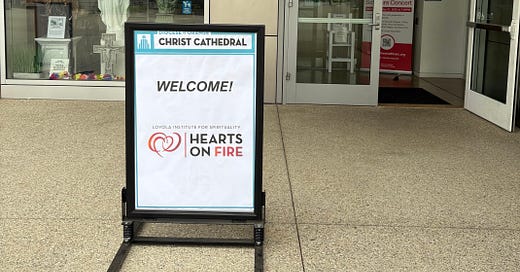



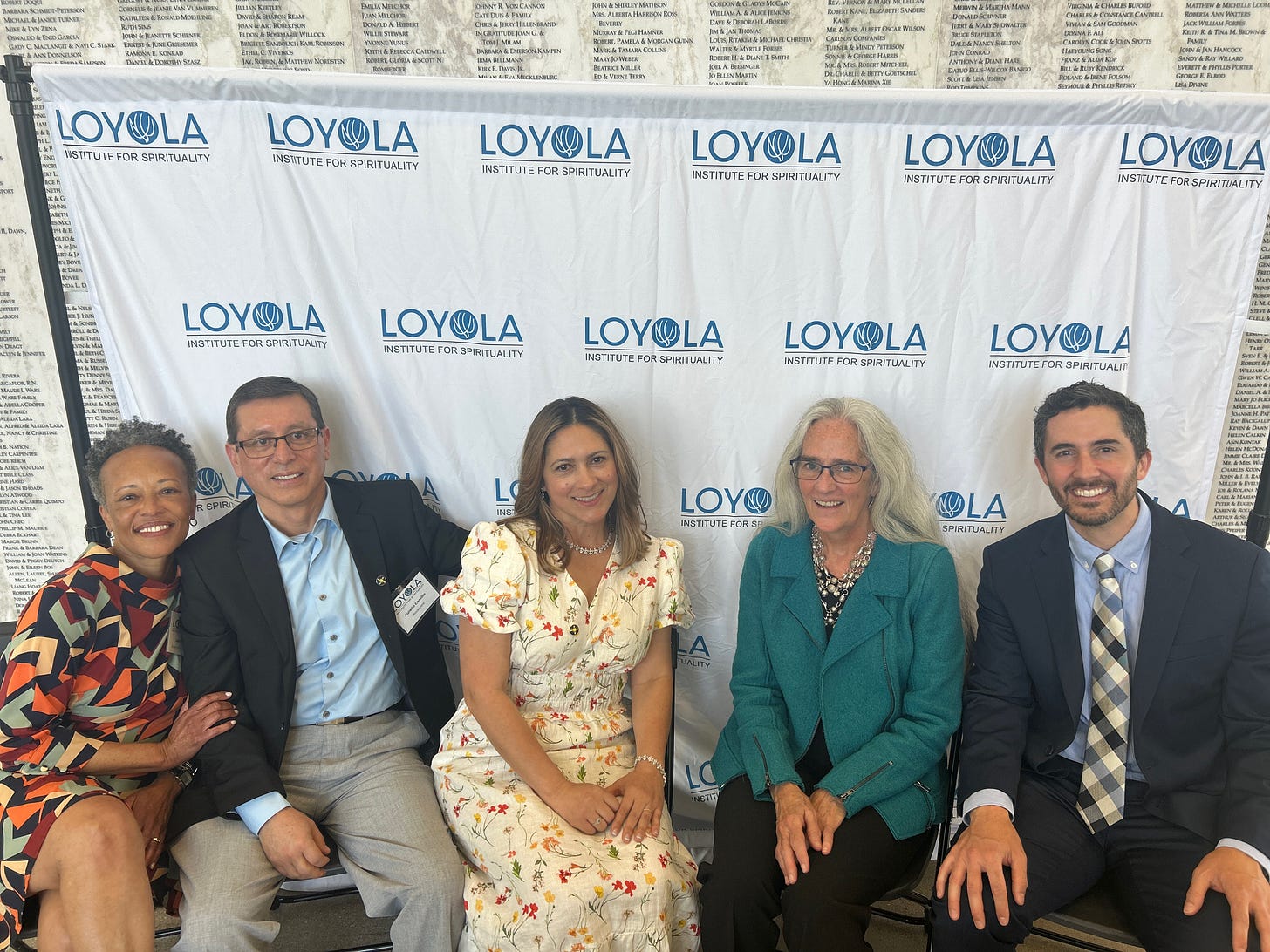
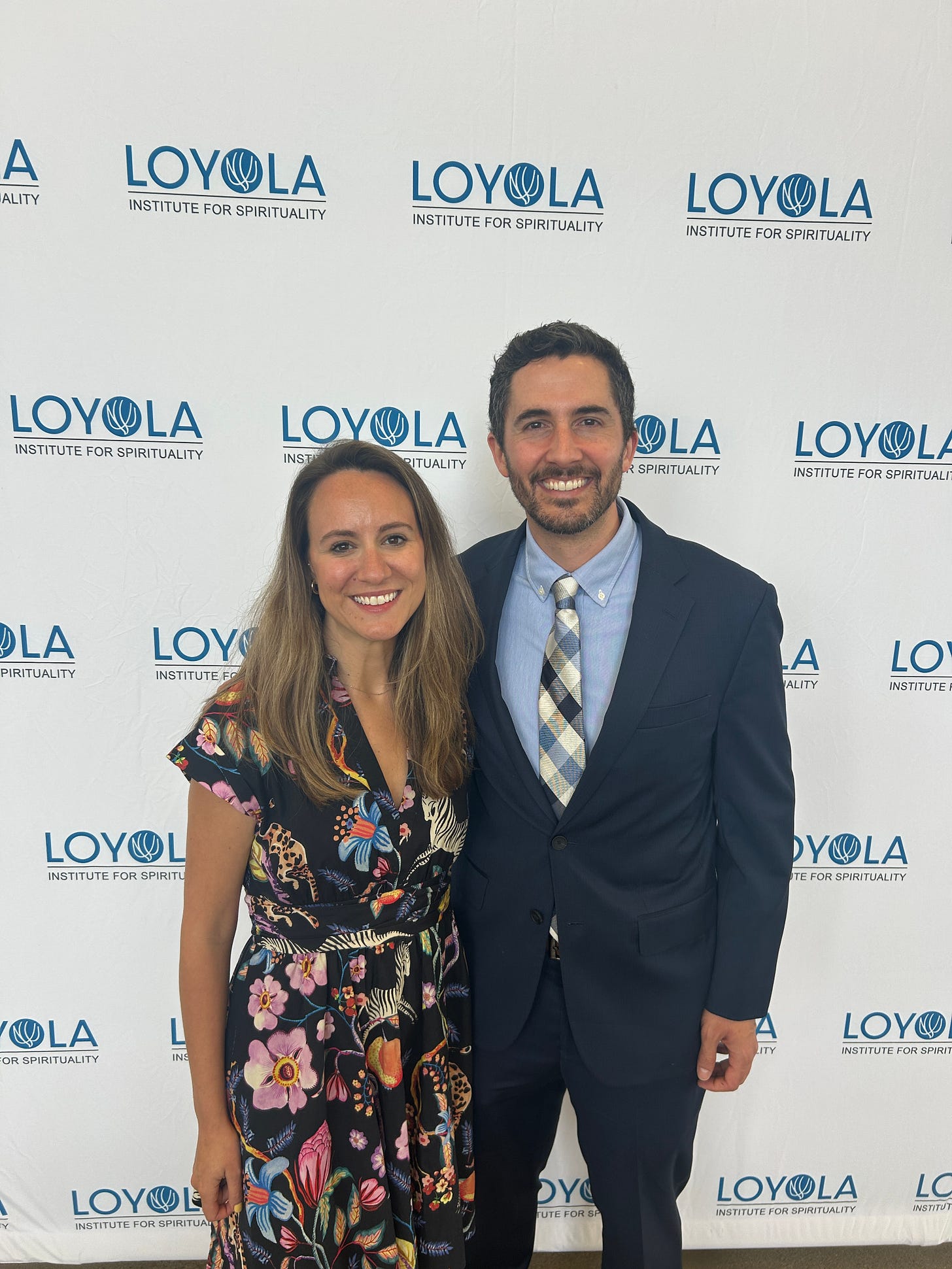
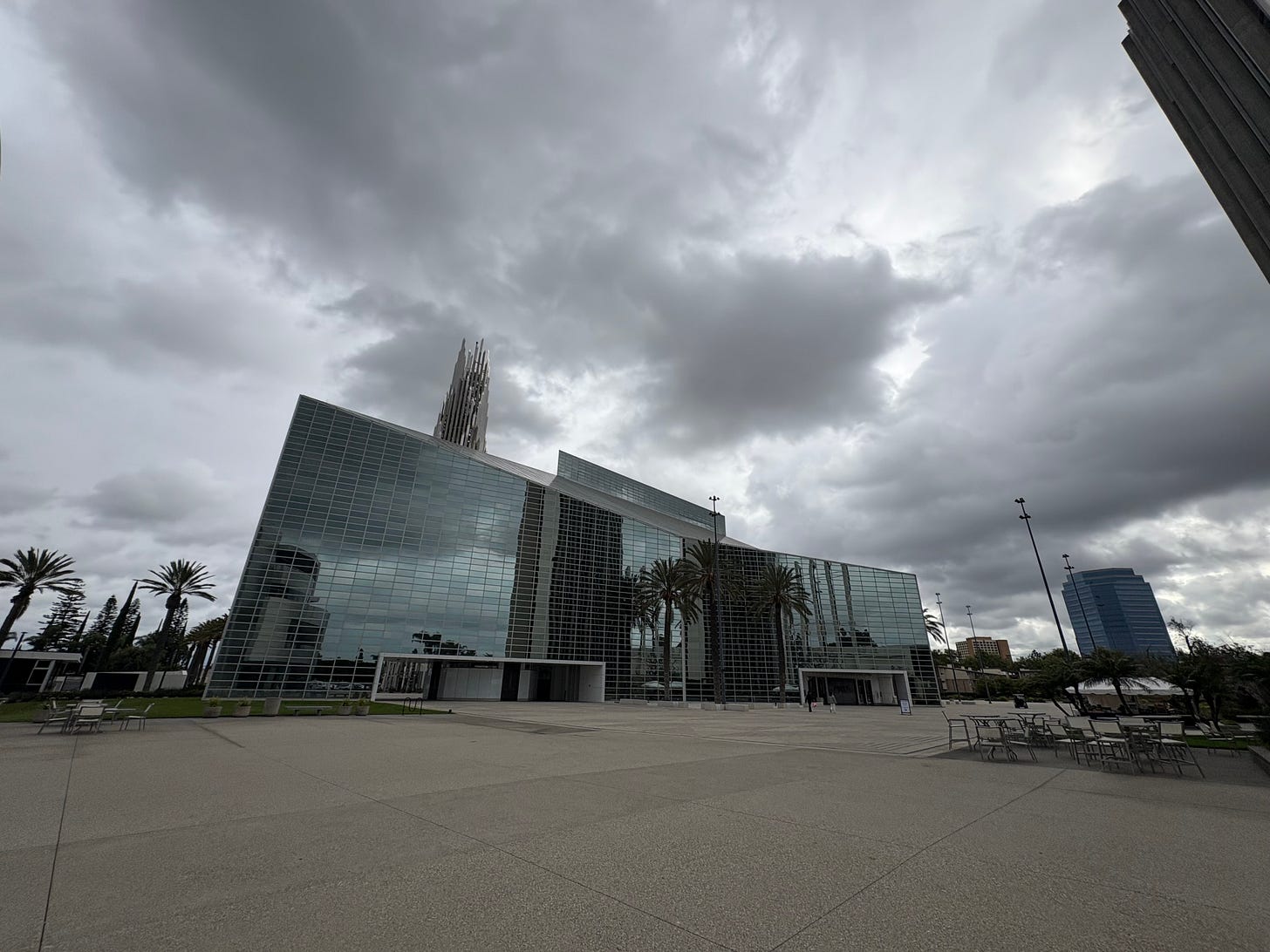
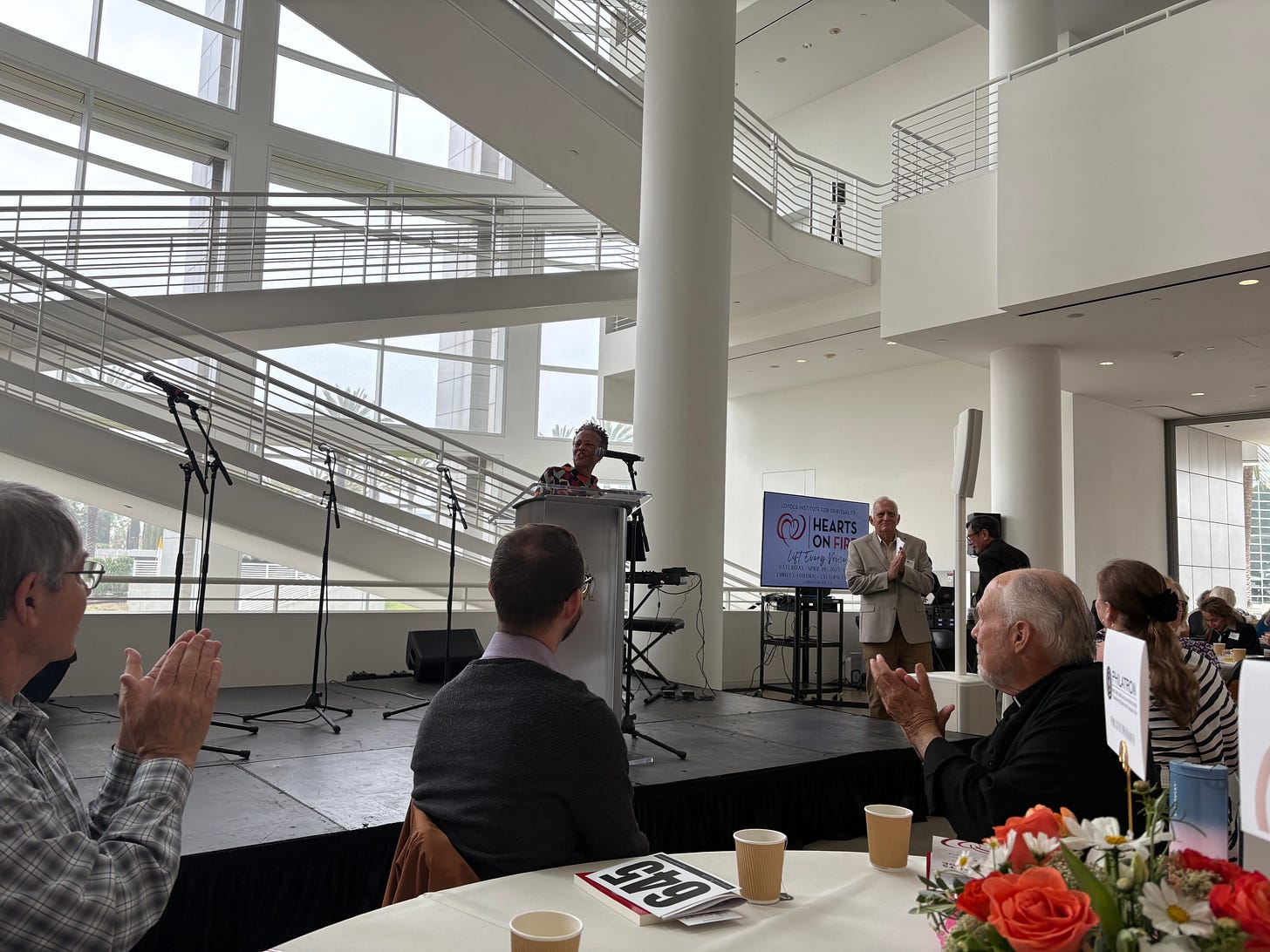
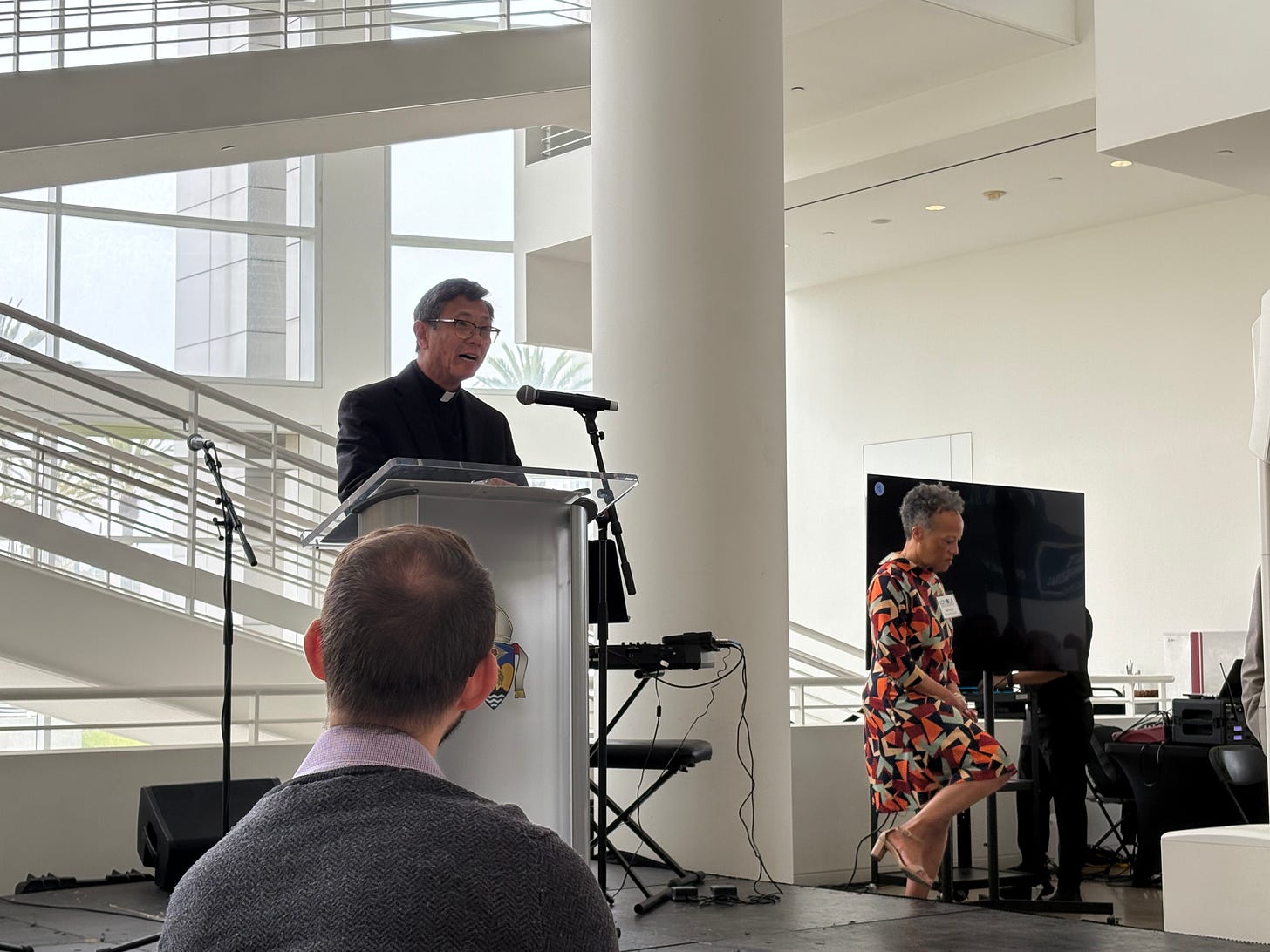
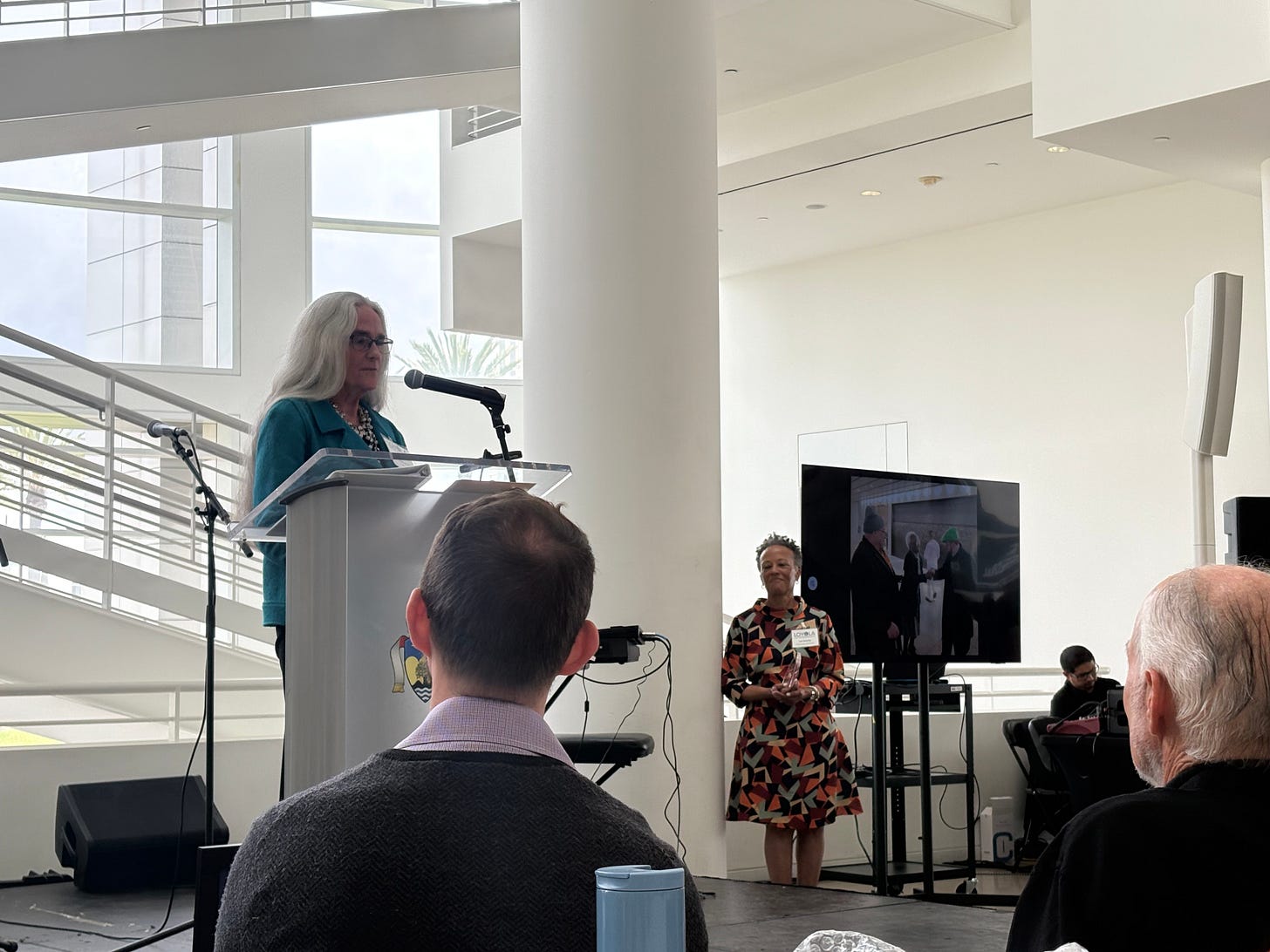



Congratulations, Eric. Your words and the “fruit of your labor” are inspiring to me.
Still buzzing from yesterday. What a joy.